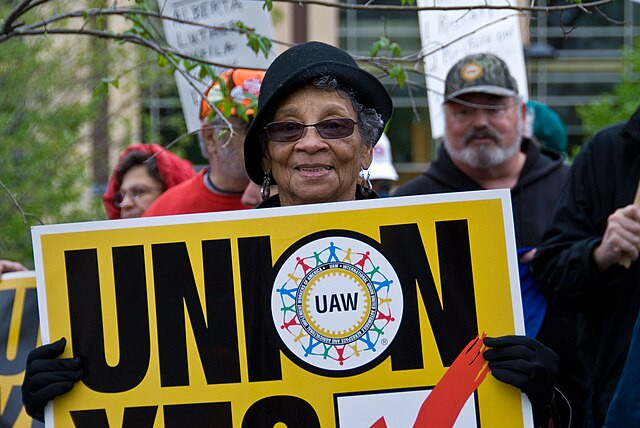The United Auto Workers (UAW) union has filed federal labor charges against former President Donald Trump and Tesla CEO Elon Musk, accusing them of making illegal and intimidating remarks about workers who go on strike. The charges were filed after a recent interview on X, the social media platform formerly known as Twitter, where Trump and Musk discussed labor issues in a manner that the UAW claims violated workers' rights.
During the interview, Trump made a controversial comment that has since sparked widespread criticism. "You walk in, you say, 'You want to quit? They go on strike, and you say, 'That's OK, you're all gone. You're all gone. Every one of you is gone,'" Trump said, while Musk could be heard laughing in agreement. The UAW argues that this statement is not only inappropriate but also illegal, as it suggests firing workers for engaging in a strike-a right protected under federal labor laws.
The UAW, which recently endorsed Vice President Kamala Harris for the 2024 presidential race, did not take these comments lightly. "Both Trump and Musk want working-class people to sit down and shut up, and they laugh about it openly," UAW President Shawn Fain said in a statement. "It's disgusting, illegal, and totally predictable from these two clowns."
The union's charges against Trump and Musk were submitted to the National Labor Relations Board (NLRB), the federal agency responsible for enforcing labor laws. The NLRB will now decide whether to investigate the allegations further. If the board finds merit in the charges, it could impose penalties, although experts note that significant consequences for Trump and Musk are unlikely.
Trump's campaign quickly dismissed the charges as a politically motivated attack. Brian Hughes, a senior advisor for Trump, described the UAW's actions as a "frivolous lawsuit" and a "shameless political stunt intended to erode President Trump's overwhelming support among America's workers." Hughes also pointed to Trump's track record of strengthening the economy and delivering results for the "forgotten men and women of America."
Musk, who has been a vocal critic of unions and has a history of clashing with labor organizers, did not respond to requests for comment on the UAW's charges. Tesla, the company Musk leads, has also been at the center of labor disputes in the past. Earlier this year, the NLRB accused Tesla of illegally restricting technology in its Buffalo, New York, facility to dissuade workers from organizing. Musk's opposition to unionization is well-documented, and Tesla has managed to avoid unionization efforts partly by offering stock options to factory workers, which has kept many organizing efforts at bay.
The UAW's decision to file charges comes at a time of heightened tension between labor unions and major corporations, with Tesla being a frequent target of unionization efforts. Fain, the UAW president, has been particularly outspoken against Trump, previously labeling him a "scab" and criticizing his approach to labor issues. Fain also praised President Joe Biden for his support of union workers, noting that Biden joined a UAW picket line last year when the union was striking against General Motors, Ford, and Stellantis simultaneously.
The legal implications of the UAW's charges remain uncertain. The NLRB could attempt to mediate a resolution, or it might choose to sue Trump and Musk on behalf of the union. However, even if a judge rules against them, the typical penalty in such cases would be a cease-and-desist order, possibly accompanied by compensation for any workers who were wrongfully terminated-though it is unclear whether Trump's remarks referenced any specific workers.






